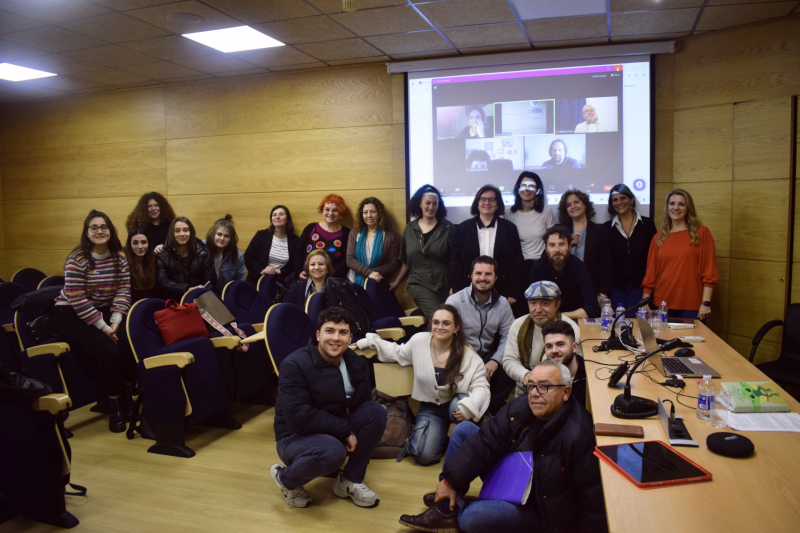
The Global-ANSWER network organized a seminar last Friday 15th, at the University of Granada, exploring the intricate landscape of social inclusion policies in Europe, with a particular emphasis on the reception and support of individuals seeking international protection.
The seminar took place in the Concepción Arenal Auditorium of the Faculty of Social Work and was moderated by Professor María Teresa Gijón Sánchez, a prominent member of the coordinating team of the Global-ANSWER Project.
Starting at 9:00, the event began with opening remarks by Professor Belén Morata, who provided a brief introduction to the Global ANSWER project. Following her, the first presentation of the seminar was delivered by Carlos Aránguez Sánchez, an experienced professor of Criminal Law at the University of Granada and a recognized lawyer in Spain.
His lecture offered all attendees a brief overview of how the current legal system operates in Europe and Spain, and how this system fails in multiple aspects to protect those migrants who arrive irregularly. He asserted that the vulnerable profile of the migrant does not change upon reaching their destination but rather "remains because it is not regularized."
Throughout his presentation, he highlighted the current lack of a common European policy that unifies all European Union countries within the same legal framework.
Explaining also how the current Spanish legal system does not protect migrants arriving in vulnerable situations, leading migrant people who were not in exclusion zones in their countries of origin to vulnerability in Spain due to lack of protection.
Additionally, the lawyer highlighted the lack of agility in the bureaucratic processes that support these migrants in Spain, and how strong discrimination persists regarding legislation that prevents migrants from reporting their aggressors due to lack of institutional support. Asserting that "it is necessary to reinforce the figure of the protected witness and the regulations applicable to the victim with the aim of improving their protection in reporting these types of crimes."
After a brief break, the morning session turned into a dynamic roundtable, in which various members of the University of Granada, Oxfam Italy, Red Acoge, University of Palermo, Asociación Engranajes, and Diversidades Acolle Vigo shared their presentations on various topics related to the migration problem.
Sharing different perspectives and field research experiences conducted by the various organizations in their respective countries, several important points were highlighted.
From Italian migration policy, through the evolution of the problem from different viewpoints in Italy and Spain; this discussion addressed gender, arrival routes, and, above all, shared locally and differently acquired knowledge, a form that could only be obtained through communication among these professionals.
After the different presentations, a question-and-answer session was opened where Italian and Spanish researchers shared doubts and suggestions about the current system, in order to understand the best points of each and how both could improve by learning from one another.
To conclude the seminar, one of the collaborators of Global ANSWER who was among the audience stated: "We cannot separate national protection policies from national and European Policies," thus highlighting the importance and necessity of conducting such seminars and projects where the need for a unified European immigration policy is debated, seeking to protect and expedite the integration of migrants into the European countries they arrive in.
